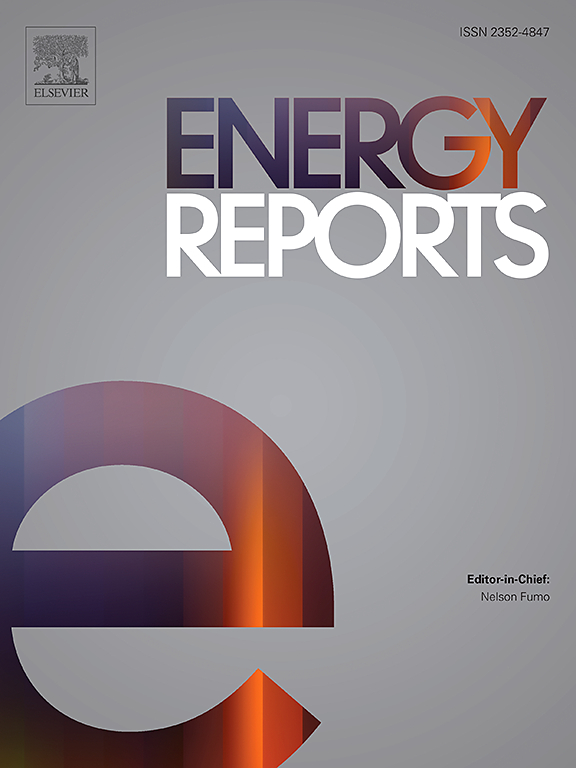通过循环经济和资源回收促进德里(印度)废物和能源部门的脱碳:向可再生能源的低碳转型
IF 4.7
3区 工程技术
Q2 ENERGY & FUELS
引用次数: 0
摘要
本研究探讨了通过应用循环经济原则和资源回收战略,使印度德里的废物和能源部门脱碳的潜力。通过利用低碳转型框架,我们提出了一个将WtE技术与可再生能源发电相结合的综合模型,为可持续城市发展和减缓气候变化做出贡献。一种新颖的“拒绝、减少、再利用、修复、再循环和回收”(6 R)基于系统动力学建模的方法被用于评估城市固体废物(MSW)管理和垃圾填埋场甲烷(CH4)回收的能源潜力和减排。该研究表明,优化节能方法,包括废物回收、资源回收和沼气生产等战略,可以显著减少德里的碳排放,提高能源安全。主要研究结果表明,整合CE原则可以在未来十年内减少高达25% %的碳排放,同时产生大量可再生能源,可能满足4.92 * 109千瓦时的电力,相当于德里年能源需求的15% %。本研究的新颖之处在于其多部门整合,将废物管理、能源回收和经济建模相结合,量化环境和能源效益。该研究强调了协调政策、商业实践和技术创新在促进城市规模的环境行政管理方面的重要性。这项工作的更广泛意义表明,德里的经验可以作为发展中经济体其他城市的蓝图,突出了综合资源回收系统如何推动可持续能源转型和气候适应能力。本文章由计算机程序翻译,如有差异,请以英文原文为准。
Promoting decarbonization in waste and energy sectors in Delhi (India) through circular economy and resource recovery: A low carbon transition towards renewable energy
This study explores the potential of decarbonizing the waste and energy sectors in Delhi, India, through the application of Circular Economy (CE) principles and resource recovery strategies. By utilizing a low-carbon transition framework, we propose an integrated model that combines WtE technologies with renewable energy generation, contributing to sustainable urban development and climate change mitigation. A novel "Refuse, Reduce, Reuse, Repair, Recycle, and Recover" (6 R) methodolog based on system dynamics modeling is used to assess the energy potential and emission reductions from municipal solid waste (MSW) management and methane (CH4) recovery in landfills. The study demonstrates that optimizing the CE approach, including strategies like waste recycling, resource recovery, and biogas production, can significantly reduce carbon emissions and improve energy security in Delhi. Key findings show that integrating CE principles can lead to a reduction in carbon emissions by up to 25 % over the next decade, while generating substantial renewable energy, potentially meeting 4.92 * 109 kWh of electricity, equivalent to 15 % of Delhi's annual energy demand. The novel aspect of this research lies in its multi-sectoral integration, combining waste management, energy recovery, and economic modeling to quantify the environmental and energy benefits. The study underscores the importance of aligning policy, business practices, and technological innovation in promoting a CE at the urban scale. The broader implications of this work suggest that Delhi’s experience can serve as a blueprint for other cities in developing economies, highlighting how integrated resource recovery systems can drive sustainable energy transitions and climate resilience.
求助全文
通过发布文献求助,成功后即可免费获取论文全文。
去求助
来源期刊

Energy Reports
Energy-General Energy
CiteScore
8.20
自引率
13.50%
发文量
2608
审稿时长
38 days
期刊介绍:
Energy Reports is a new online multidisciplinary open access journal which focuses on publishing new research in the area of Energy with a rapid review and publication time. Energy Reports will be open to direct submissions and also to submissions from other Elsevier Energy journals, whose Editors have determined that Energy Reports would be a better fit.
 求助内容:
求助内容: 应助结果提醒方式:
应助结果提醒方式:


